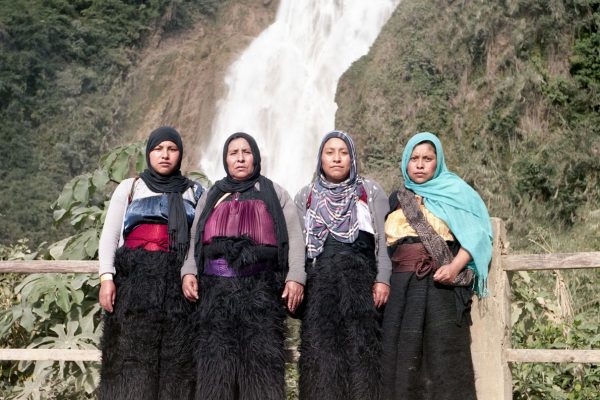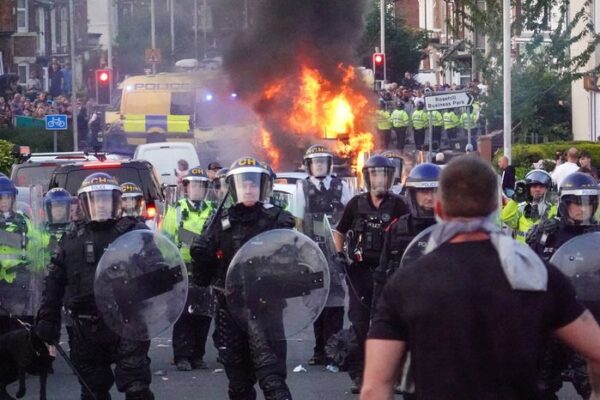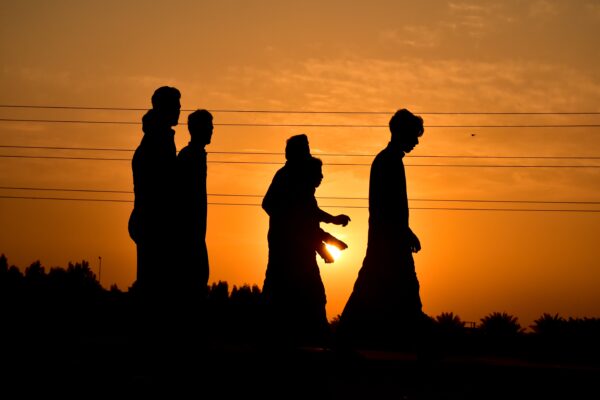The experiences of British male converts to Islam have been captured in a unique report launched by the University of Cambridge.
Examining the conversion journeys of nearly fifty British men of all ages, ethnicities and faiths, Narratives of Conversion to Islam in Britain: Male perspectives, allows an unprecedented examination of the challenges and concerns facing converts to Islam in the UK today.
The landmark report, produced by Cambridge’s Centre of Islamic Studies, captures the isolation and dislocation felt by many new converts, and the sense of being a ‘minority within a minority’ as they adjust to life as a follower of one of the most maligned and misunderstood faiths in the UK.
“A number of things happened to me when I embraced Islam twenty years ago. It was a very challenging time and an experience I won’t forget about. I suffered physical and emotional abuse from my family. It was a very testing time.”
With converts drawn from white, black and South Asian backgrounds from across the UK, Cambridge assembled nearly 50 British males over the course of the 18-month project in an attempt to understand and record the experiences of British male converts to Islam. The converts were from a diverse range of geographical and socio-economic backgrounds.
The Male perspectives report follows Cambridge’s hugely successful report into female conversion in 2013 (http://bit.ly/1lNy3tW) which has been downloaded more than 150,000 times from the Centre of Islamic Studies’ website and attracted widespread media coverage.
Speaking under Chatham House Rules, the converts gathered together in Cambridge over three weekends to record their responses to a wide-ranging list of themes, questions and provocations.
Among the key findings to emerge from the Male perspectives project were:
- There is often targeting of converts by the British Security Services to work as informants
- White converts lose their white privilege on conversion
- Conversion to Islam in prison is usually driven by a desire to instil discipline into a prisoner’s life. But upon release, Muslims find little support from their families or Muslim communities, increasing the risk of reoffending
- Converts live in a liminal space: cut off from their families and friends and only tenuously integrated within heritage Muslim communities.
- Recognition that women converts experience worse hardships through wearing the hijab and other religious dress
- There are many routes to Islam: love and marriage; friendship; conviction and rational choice; music, arts, architecture and pondering the beauty of the universe
Shahla Awad Suleiman, Teaching and Outreach Associate at the Centre of Islamic Studies, and Project Manager of the report, said: “Narratives of Conversion sets out the contours of the relationship between converts and heritage Muslims, warts and all, and builds on the findings of our hugely successful work with female converts.
“Allowing our male converts to set the agenda and speak frankly and openly about the very real issues they have to face and wrestle with has given us – and anyone who reads the report – real insight into the challenges facing 21st century converts to Islam.”
Professor Yasir Suleiman, Director of Cambridge’s Centre of Islamic Studies, said: “In the West, conversion to Islam has been tarnished by claims of extremism (violent and non-violent), radicalisation, and, sadly, terrorism. It has also fallen victim to the general apathy towards faith in largely secular societies causing those who convert to be described by some as not only eccentrics, misfits, outcasts and rebels, but also as renegades, traitors or enemies of a fifth column who have turned their back on their original culture(s).
“Converts can be made to feel outsiders from the lives they have left behind and as new members of the faith they have embraced upon conversion. This report reveals that conversion to Islam is as much a matter of the head as it is for the heart and soul.
“What this report also illuminates is the importance of convert-specific organisations. There is not enough support for the convert community as things stand. But by sharing their experiences frankly and honestly, this diverse group of converts revealed a profound sense of their pride in both Islam and their British heritage, despite the often negative portrayal of converts in the mainstream press.”
Other topics discussed in the report include the mixed response of heritage Muslims to converts, homosexuality and polygyny.
Although the symposium and reports were conducted under conditions of anonymity (quotes are not attributed within the report), several of the converts have agreed to speak on the record about their conversion experiences.
Abdul Maalik Tailor, who converted to Islam from Hinduism, and now runs Islamic-themed tours of London, suffered considerably after converting.
“A number of things happened to me when I embraced Islam twenty years ago,” he said. “It was a very challenging time and an experience I won’t forget about. I suffered physical and emotional abuse from my family. It was a very testing time.
“For myself and other brown converts, it always goes back to the issue of partition between India and Pakistan and Bangladesh. My relatives thought I had become brainwashed. I was basically given an ultimatum: give up the religion or get out. I was 18 at the time. And I had to leave after being beaten up.
“A year later my father passed away and there was an expectation that I had to fulfil all the Hindu rituals as I was the only son. I had to say, ‘I can’t do it’, which was a challenge; I would have preferred to have a lot more support from the Muslim community at that time.”
Another participant, Adrian (Jamal) Heath, said: “I always joke with people that it’s a bit like ‘coming out’ and I’ve discovered a lot of people who concealed this until the later stages. I was exposed as a Muslim to friends and family inadvertently and my parents took it hard. They didn’t come to my wedding. I was also subject to some ridicule at work, which I now look back on as completely unacceptable in the modern world. I was ridiculed for my prayer times and to my face by people who had education and should have known better.
“As a white man in modern Britain, I’d never come across the feeling of being in a minority before and that actually quite shocked me.”
Another theme that provoked widespread discussion was the media portrayal of Muslims.
Convert Warren (Raiyyan) Clementson said: “Generally speaking, when I see converts on TV, they have been radicalised or involved in extremist activity. So for me personally, it’s a double whammy. Firstly, the negative portrayal of Muslims as a whole and within that, a sub-context of the convert community being portrayed in a radical light, or that they’re most susceptible to ideologies of violence. Being a convert myself, and having met so many other converts, this is a fallacy.”
Abdul Maalik Tailor questioned why there seemed to be such a propensity for negativity in the portrayals of both Islam and converts to the religion.
“You find a number of stories that concentrate on radicalisation. If there are successful Muslim converts who have contributed to society and to Britain, they won’t get highlighted by the media. Why do the media have a set agenda to try and demonise us?”
Shahla Awad Suleiman added: “By pulling together these narratives of conversion we have dealt with topics of enormous importance, not just to Muslims, but British society at large.
“There is now a need for more work on the friends and families of converts, heritage Muslims’ views and reception of converts, the children of converts, and more work on conversion to Islam in Britain away from the security prism.”
The report Narratives of Conversion to Islam in Britain: Male Perspectives can be downloaded here: http://www.cis.cam.ac.uk/
(Source)





